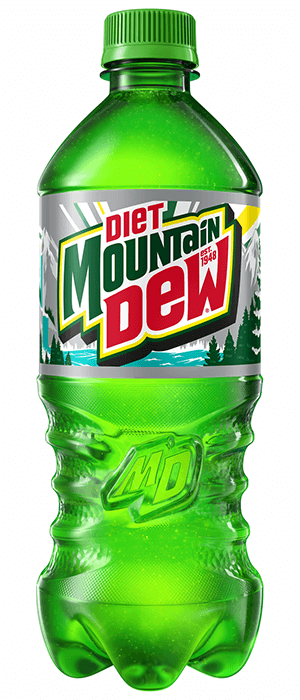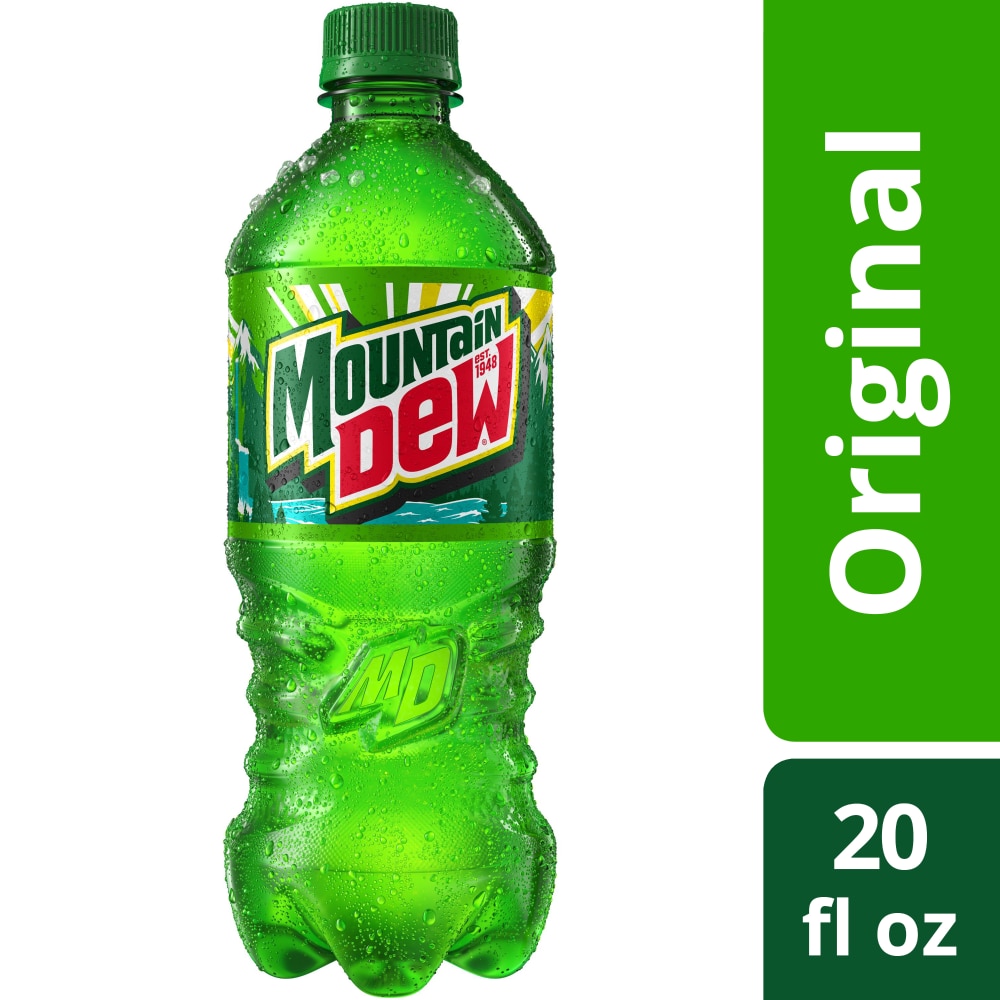Imagine a world where your favorite fizzy drink doesn’t just quench your thirst but also supports your wellness goals. Enter Diet Dew—a refreshing twist on the classic soda that promises all the flavor you crave without the extra calories.
You’re probably wondering if this is too good to be true. Can a diet soda really be part of your healthy lifestyle, or is it just another marketing gimmick? We’ll uncover the truth behind Diet Dew, exploring its ingredients, taste, and health implications.
You deserve to enjoy your favorite drinks without compromising your well-being. Let’s dive into whether Diet Dew can be the guilt-free indulgence you’ve been searching for. Keep reading to find out everything you need to know before you crack open your next can.
What Is Diet Dew?
Diet Dew is a popular choice for many soda enthusiasts. It offers the same refreshing taste as regular Mountain Dew. But with fewer calories. This drink is a favorite among those watching their calorie intake. It blends the classic citrus flavor with a low-calorie twist. Let’s dive deeper into what makes Diet Dew so special.
Diet Dew is a low-calorie version of Mountain Dew. It’s known for its bold citrus flavor. This drink aims to satisfy soda lovers who want fewer calories. The formulation includes artificial sweeteners. These replace the sugar found in regular Mountain Dew.
Ingredients Of Diet Dew
Diet Dew contains carbonated water, citric acid, and natural flavors. It also includes caffeine, which provides an energy boost. Sweeteners like aspartame are used to reduce calories. Preservatives ensure the drink stays fresh for longer.
Calories And Nutritional Information
A can of Diet Dew has minimal calories. This makes it a popular choice for calorie-conscious individuals. It contains no sugars. But it does have a small amount of sodium. This makes it a good option for those limiting sugar intake.
Popularity And Availability
Diet Dew is widely available in stores. It’s a popular choice at restaurants and fast-food chains. Its availability makes it a convenient option for many. The drink’s popularity continues to rise globally.
Consumer Feedback
Many enjoy Diet Dew for its refreshing taste. Some appreciate its low-calorie content. Others like the caffeine boost it provides. Feedback often highlights its vibrant flavor and widespread availability.

Credit: en.wikipedia.org
Nutritional Profile
When considering a beverage that offers a refreshing taste without packing in too many calories, Diet Dew often comes to mind. But what exactly is in this fizzy drink that makes it a popular choice for those watching their calorie intake? Let’s dive into the nutritional profile of Diet Dew to understand its components better. Whether you’re counting calories or curious about its ingredients, knowing what’s in your drink can guide healthier choices.
Calorie Content
Diet Dew is famous for its low calorie count, which makes it an appealing option for calorie-conscious individuals. One can of Diet Dew typically contains less than 10 calories. This is a stark contrast to regular sodas, which can have upwards of 150 calories per serving. If you’re trying to cut back on calories without sacrificing your favorite flavors, Diet Dew might be the solution you’re looking for.
Sweeteners Used
To achieve its sweet flavor without the added calories, Diet Dew uses artificial sweeteners. The most common sweeteners found in Diet Dew are aspartame and acesulfame potassium. These sweeteners provide the sugary taste many crave but without the caloric impact. Are you aware of the ongoing debates about artificial sweeteners? It’s always a good idea to consider how these ingredients fit into your personal health goals.
Vitamins And Minerals
Diet Dew doesn’t offer much in terms of vitamins and minerals. It’s primarily a beverage meant for taste and refreshment rather than nutritional benefits. However, some versions of Diet Dew may include trace amounts of certain vitamins or minerals. If you rely on your drinks for nutritional intake, you might want to complement Diet Dew with other sources rich in essential nutrients.
Overall, understanding the nutritional profile of Diet Dew helps you make informed decisions about your beverage choices. Are you a fan of Diet Dew, or do you prefer other low-calorie options? Exploring the ingredients list can be an eye-opening experience, guiding you to what best suits your lifestyle and health objectives.
Health Benefits
Diet Dew offers a refreshing taste with potential health benefits. Many people choose Diet Dew for its lower calorie content. It provides a guilt-free option for soda lovers. Let’s explore how Diet Dew can support your health goals.
Weight Management
Diet Dew can be part of a weight management plan. It contains fewer calories than regular sodas. This makes it easier to enjoy a sweet drink without consuming extra calories. Choosing low-calorie beverages can help maintain or lose weight.
Hydration Support
Staying hydrated is essential for good health. Diet Dew can contribute to your daily fluid intake. It offers a flavorful alternative to plain water. This can encourage you to drink more fluids throughout the day.
Reduced Sugar Intake
Diet Dew has less sugar than traditional sodas. Reducing sugar intake can benefit your overall health. High sugar consumption is linked to many health issues. Opting for Diet Dew helps lower sugar consumption while still enjoying a tasty drink.

Credit: www.pepsicoproductfacts.com
Flavor And Taste
When you first take a sip of Diet Dew, you might be surprised by its bold flavor. It’s a refreshing twist on the classic Mountain Dew that keeps the signature citrusy kick alive. But what sets it apart is how it manages to deliver a similar taste experience with fewer calories.
Comparing With Regular Versions
Many of us have a favorite soda, and switching to a diet version can feel like a compromise. But Diet Dew challenges that notion by closely mimicking the taste of its regular counterpart. Some fans even claim they can barely tell the difference. This begs the question: How does Diet Dew maintain that vibrant flavor profile? The answer lies in its unique blend of artificial sweeteners that replicate the sweetness without the added sugar. This means you can enjoy the same fizzy delight without the guilt of extra calories.
Consumer Preferences
What do consumers really think about Diet Dew’s flavor? Interestingly, a significant number of people prefer it over the regular version. This preference often stems from its lighter feel and crisp taste. Imagine reaching for a cold can on a hot day, relishing the burst of citrus without the sugary aftertaste. For many, this is the ultimate refreshment. Others appreciate the balance it strikes, allowing them to enjoy their favorite drink while watching their calorie intake.
Have you ever wondered why some people are staunch supporters of Diet Dew while others remain loyal to the original? It often comes down to personal taste preferences and lifestyle choices. Whether you’re cutting calories or simply enjoy the flavor, Diet Dew offers a satisfying alternative. So, next time you’re in the beverage aisle, consider giving Diet Dew a try. You might just find a new favorite!
Market Trends
In the ever-evolving world of beverages, Diet Dew has captured attention with its unique blend of flavors and promises of zero sugar. As consumers become increasingly health-conscious, the beverage industry is witnessing significant shifts. Understanding these market trends can help you make informed choices when selecting your go-to drink.
Popularity Among Consumers
Diet Dew’s popularity is skyrocketing. Many consumers are swapping traditional sodas for healthier alternatives. It’s not just about the taste; it’s about feeling good about what you consume.
I’ve noticed friends at gatherings opting for Diet Dew over regular sodas. The shift reflects a desire for guilt-free indulgence without compromising on flavor.
Are you one of those who have made the switch? If so, you’re part of a growing trend that’s reshaping beverage preferences worldwide.
Competitive Beverage Options
While Diet Dew is gaining traction, there are plenty of other zero-calorie options in the market. Brands like Coke Zero and Pepsi Max offer similar appeals.
Yet, each brand has its unique selling point. Some focus on flavor variety, while others emphasize natural ingredients. It’s fascinating to see how brands differentiate themselves in this competitive landscape.
What draws you to a particular drink? Is it the flavor, the branding, or perhaps the promise of better health? Your choice might depend on the subtle differences between these competitors.
As you navigate the beverage aisle, consider trying different options. You might find a new favorite that perfectly aligns with your taste and health goals.

Credit: www.dillons.com
Considerations And Concerns
Diet Dew is a popular choice among soda lovers. Yet, there are some considerations and concerns to keep in mind. Many people enjoy its taste without the extra calories. But it’s important to look at the ingredients and health risks.
Artificial Ingredients Debate
Artificial sweeteners give Diet Dew its sweet taste. These include aspartame and acesulfame potassium. Critics argue about their safety. Some studies suggest they may affect metabolism. Others worry about their impact on gut health. Despite approval from regulatory bodies, the debate continues. Consumers should stay informed.
Potential Health Risks
Drinking Diet Dew in large amounts may pose health risks. Some research links artificial sweeteners to weight gain. Others connect them to increased appetite. There are also concerns about bone health and dental issues. It’s crucial to balance consumption with other healthy habits.
Incorporating Into Lifestyle
Diet Dew can easily fit into your daily routine. This refreshing drink offers a low-calorie option for those mindful of their health. It can complement various parts of your day. Understanding the best times and ways to enjoy Diet Dew can enhance your experience. Let’s explore how you can make the most of it.
Best Times To Consume
Enjoy Diet Dew in the morning for a refreshing start. It pairs well with breakfast, giving a caffeine kick without extra sugar. Midday is another great time. It can boost energy during afternoon slumps. Many find it helpful during work breaks or study sessions. It’s a smart choice for those needing focus and alertness.
Pairing With Meals
Diet Dew can pair perfectly with meals. It complements light lunches with its crisp taste. Salads, sandwiches, and wraps match well with its flavor. During dinner, it offers a refreshing contrast to hearty meals. Pizza, pasta, and grilled dishes are excellent companions. Its low-calorie profile keeps your meal balanced.
Frequently Asked Questions
What Is Diet Dew?
Diet Dew is a low-calorie version of Mountain Dew. It offers the same citrus flavor but with fewer calories. It’s popular among those seeking a refreshing drink without the extra sugar. Perfect for maintaining a healthier lifestyle while enjoying the iconic taste of Mountain Dew.
Is Diet Dew Sugar-free?
Yes, Diet Dew is sugar-free. It’s formulated to deliver the classic Mountain Dew taste without sugar. Instead of sugar, artificial sweeteners are used to provide sweetness. This makes it a great choice for those reducing sugar intake while enjoying flavorful beverages.
Does Diet Dew Contain Caffeine?
Yes, Diet Dew contains caffeine. It’s known for its energizing properties, making it a popular choice. The caffeine content is similar to the regular Mountain Dew. Ideal for those who enjoy caffeine’s stimulating effects in a refreshing, low-calorie drink.
Is Diet Dew Healthier Than Regular Mountain Dew?
Diet Dew is healthier in terms of calorie and sugar content. It offers the same taste with fewer calories and no sugar. This makes it a better choice for those looking to reduce calorie intake. However, it contains artificial sweeteners, which some may prefer to avoid.
Conclusion
Diet Dew offers a refreshing choice for those seeking a lighter drink. Its unique flavor satisfies thirst without heavy calories. Many enjoy its crisp taste and convenience. It’s a popular option for a balanced lifestyle. Choosing Diet Dew means choosing a smarter beverage.
It fits well into daily routines, whether at work or play. Taste and health go hand in hand with Diet Dew. Enjoying a drink doesn’t mean sacrificing health goals. Try Diet Dew today and experience a refreshing change. Remember, every sip is a step towards healthier choices.
Make your moments refreshing and guilt-free.
{ “@context”: “https://schema.org”, “@type”: “FAQPage”, “mainEntity”: [ { “@type”: “Question”, “name”: “What is Diet Dew?”, “acceptedAnswer”: { “@type”: “Answer”, “text”: “Diet Dew is a low-calorie version of Mountain Dew. It offers the same citrus flavor but with fewer calories. It’s popular among those seeking a refreshing drink without the extra sugar. Perfect for maintaining a healthier lifestyle while enjoying the iconic taste of Mountain Dew.” } } , { “@type”: “Question”, “name”: “Is Diet Dew sugar-free?”, “acceptedAnswer”: { “@type”: “Answer”, “text”: “Yes, Diet Dew is sugar-free. It’s formulated to deliver the classic Mountain Dew taste without sugar. Instead of sugar, artificial sweeteners are used to provide sweetness. This makes it a great choice for those reducing sugar intake while enjoying flavorful beverages.” } } , { “@type”: “Question”, “name”: “Does Diet Dew contain caffeine?”, “acceptedAnswer”: { “@type”: “Answer”, “text”: “Yes, Diet Dew contains caffeine. It’s known for its energizing properties, making it a popular choice. The caffeine content is similar to the regular Mountain Dew. Ideal for those who enjoy caffeine’s stimulating effects in a refreshing, low-calorie drink.” } } , { “@type”: “Question”, “name”: “Is Diet Dew healthier than regular Mountain Dew?”, “acceptedAnswer”: { “@type”: “Answer”, “text”: “Diet Dew is healthier in terms of calorie and sugar content. It offers the same taste with fewer calories and no sugar. This makes it a better choice for those looking to reduce calorie intake. However, it contains artificial sweeteners, which some may prefer to avoid.” } } ] }
